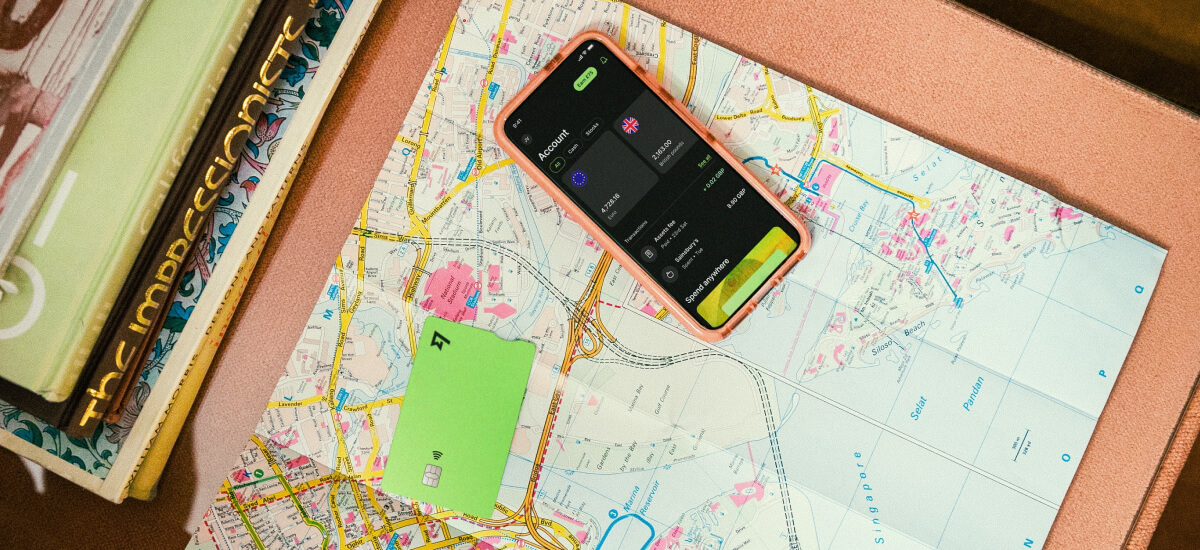How to buy a house in Japan: US guide
Interested in buying a house in Japan? Here’s everything you need to know about buying property abroad as an American.

Wondering how you can buy a house in Japan as a foreigner? In theory, you can buy property and get a mortgage in Japan with no restrictions.
But in reality, most lenders require permanent residency in Japan to consider you for a housing loan. That said, understanding the requirements and being able to pay a larger down payment can improve your chances. Here's everything you need to know.
Yes, US citizens can legally buy property and get mortgages in Japan. No laws are stopping you from applying. But without permanent residency, getting a home mortgage loan will be challenging.
Banks want to be sure you'll stay in Japan long enough to repay your loan. That's why they prefer lending to permanent residents. In fact, in Q2 of 2024, Japanese households owned 232.6 trillion JPY in housing loans, and this number has been steadily increasing since 2018.¹
There are no special legal requirements to get a mortgage in Japan as a non-resident. But unfortunately, Japanese banks have their own strict rules about lending to foreigners, and most will only work with permanent residents.
| 🚨 To get permanent residency, you typically need to live in Japan for 10 consecutive years. However, if you're a highly skilled professional, you might qualify in as little as 3 years.² |
|---|
Learn more about moving to Japan in our full guide.
You'll find 3 main types of mortgages in Japan:
Private mortgages: These are standard loans from commercial banks. They're the most common choice for homebuyers in Japan, but it can be hard for foreigners without permanent residency to qualify for them
Public mortgages: Local government organizations offer these mortgages, and they often come with more favorable terms than private banks. They also usually have specific eligibility requirements and might be restricted to certain areas or types of properties
'Flat 35’ mortgages: This is a government-backed program that offers fixed-rate mortgages for 35 years through different participating banks
You can choose between fixed and variable (floating) rates.
With a fixed rate, your monthly payment stays the same. With a variable rate, it can change based on the market conditions. About 75% of Japanese homeowners choose variable rates because they typically start lower than fixed rates.³
Japan's mortgage rates are some of the lowest in the world. As of December 2023, city banks charged about 2.48% interest per year.⁴ Some online banks even offer rates as low as 0.27%.³
But in 2024, The Japan Times reported that mortgages in Japan were likely to see an increase soon. The Bank of Japan just raised interest rates for only the second time in 17 years.³
Still, Japanese mortgages are likely to continue to come with competitive rates.
Many mortgages for overseas properties require larger minimum down payments.
In Japan, you'll need to save at least 20% of the property's value for a down payment. But if you're not a permanent resident, banks will likely ask for a much bigger down payment - typically up to 50%.⁵
For example, on a 30 million JPY property (~196,000 USD), getting a mortgage in Japan as a foreigner means that you may have to pay up to 15 million JPY as a down payment (~98,000 USD). For permanent residents, the average down payment would be just 6 million JPY (~39,000 USD).
Getting a mortgage in Japan as a foreigner isn't easy, but there are a few things you can do to make the process smoother.
1. Work with an experienced broker
A broker who regularly works with foreigners will understand the unique challenges you face and know which banks are more likely to approve your application. They can also help navigate language barriers and paperwork requirements.
2. Check your residency options
Your mortgage options will be limited without the right residency status. If you're planning on living in Japan, research available long-term visas and the paths to permanent residency.
Typically, you need to live in Japan for at least 10 years before you can apply for permanent residency, but highly skilled professionals may be able to do it sooner.²
3. Build a substantial down payment
Banks will expect at least a 20% down payment from permanent residents, but as a foreigner, you might need up to 50%.⁵ Start saving early!
4. Get insurance quotes
Your international lender will likely require you to get property insurance, so it's a good idea to start getting quotes in advance.
5. Understand residency limitations
Buying property in Japan doesn't automatically grant you any residency rights. You'll need to maintain your visa status independently of your property ownership, so make sure to have a solid plan for how you're going to stay in Japan.
6. Plan for currency risks
If you earn in a foreign currency (such as USD), your actual mortgage payments could fluctuate significantly with exchange rates.
You might also want to open a bank account in Japan. It helps you establish a local financial footprint and can make managing your mortgage payments easier.

Now that we covered some of the basics of Japan mortgages, you may be wondering: how to send money to pay for your property overseas?
Wise offers you a quick, secure and transparent way of sending money to Japan. You get the mid-market exchange rate for your payments and see how much it’s charged for the transfer before sending the money from your bank.
With the Wise Account you can also hold 40+ currencies, spend money in 150+ countries, and receive like a local in 9 different currencies.
Please see Terms of Use for your region or visit Wise Fees & Pricing for the most up to date pricing and fee information
Wondering how to get a mortgage in Japan? It's possible, but it often comes with a lot of paperwork. You'll typically need:
- Passport and residence card (or at least your visa)
- Proof of employment
- Income proof for the last few years
- Recent tax returns
- Bank statements showing your savings
- Proof of address
- Property purchase agreement
- Evidence of down payment funds
If you're self-employed or a business owner, you'll often need to provide extra documentation to prove your financial stability. You might have to submit income proof documents that go further back or detailed profit and loss statements.
Here's how applying for a mortgage in Japan typically works.
Step 1. Check your eligibility
First, evaluate if you're likely to qualify for a mortgage. If you don't have a permanent residency in Japan, you'll likely have a limited choice of banks.
You should also calculate how much you can afford monthly and take a closer look at your savings to make sure you have enough for a down payment (which can be as high as 50%).⁵
Step 2. Prepare your documents
Start collecting all necessary paperwork early because gathering everything can easily take a few weeks. You'll likely need official translations of any documents not in Japanese.
Step 3. Get in touch with multiple banks
Compare rates and terms from at least 3 or 4 different banks. A mortgage broker can help you navigate your options and might have access to better rates.
Step 4. Get pre-qualified
This will help you understand your real budget. The bank will review your finances and tell you how much they're willing to lend.
Step 5. Find your property
Look for properties within your pre-qualified budget until you find the right one.
Step 6. Submit your application and wait for approval
Once you've found a property, submit your formal application to the bank. You may have to pay mortgage application fees.
The bank will arrange for a property valuation to confirm that the purchase price is fair. They'll also do a detailed check of your financial history and employment.
Step 7. Close the deal
After approval, carefully review all final loan documents, transfer your down payment and sign the necessary documents to purchase your Japanese property.
Getting mortgage approval in Japan typically takes a few weeks.
The exact timeline depends on your situation. If you have unusual income sources or the bank asks for extra documentation, the process might take longer.
If you want to increase your chances of getting approved for mortgages in Japan, here's what can help:
- Saving more than the minimum down payment
- Learning basic Japanese banking terms
- Getting permanent residency if possible
- Using an experienced real estate agent and/or mortgage broker
- Keeping detailed financial records
Your goal is to show Japanese banks that you're financially stable and responsible.
| 💡 Learn more about buying property abroad as an American in our full guide. |
|---|
Japanese mortgages sometimes start with a fixed term of 5 or 10 years. When this period ends, you can refinance your mortgage.
Note that new terms might be worse than your current ones, so Japanese mortgage renewal isn't always worth it.⁵
There's no legal requirement to live in Japan to get a mortgage, but banks are hesitant to lend to non-residents. They want to see that you have stable ties to the country and a clear reason to stay on top of monthly payments.
Some banks might approve your application if you can pay a large down payment (typically 50%), but you'll have much better chances if you have permanent residency in Japan.⁵
Buying property in Japan as a foreigner isn't hard. There are no restrictions on foreign property ownership, and you don't need any special permits or permissions to buy a house or an apartment.
But if you need to finance your purchase, getting a mortgage in Japan as a foreigner can be tricky. Japanese banks typically don't lend to foreigners without permanent residency.
It's tricky if you don't have permanent residency in Japan. Banks might consider your application if you can pay a larger down payment (typically 50%) and have a strong, stable income.⁵
No, buying property in Japan doesn't help you get permanent residency in any way. To get permanent residency, you typically need to live in Japan for at least 10 years with an appropriate visa (if you're a highly skilled professional, you may be able to get permanent residency sooner).²
Americans can usually stay in Japan for up to 90 days without a visa.⁶
Getting a mortgage in Japan as a foreigner is hard but not impossible.
If you're financially stable and can pay a large down payment, you may be able to find a bank that'll approve your application. So, research different options and consider working with an experienced mortgage broker.
And when you’re ready to go, pay and get paid in Japan with Wise. You can send high-speed, low-fee transfers for large amounts like your down payment in just a few clicks.
Sources
Sources checked 11.14.2024
*Please see terms of use and product availability for your region or visit Wise fees and pricing for the most up to date pricing and fee information.
This publication is provided for general information purposes and does not constitute legal, tax or other professional advice from Wise Payments Limited or its subsidiaries and its affiliates, and it is not intended as a substitute for obtaining advice from a financial advisor or any other professional.
We make no representations, warranties or guarantees, whether expressed or implied, that the content in the publication is accurate, complete or up to date.

Interested in buying a house in Japan? Here’s everything you need to know about buying property abroad as an American.

Interested in buying a house in the Philippines? Here’s everything you need to know about buying property abroad as an American.

Interested in buying a house in Portugal? Here’s everything you need to know about buying property abroad as an American.

Interested in buying a house in Dubai? Here’s everything you need to know about buying property abroad as an American.

It's not common for Chase to hand out international mortgages, but here's what you need to know and available alternatives.

Read on for everything you need to know about getting an international mortgage from Citibank.